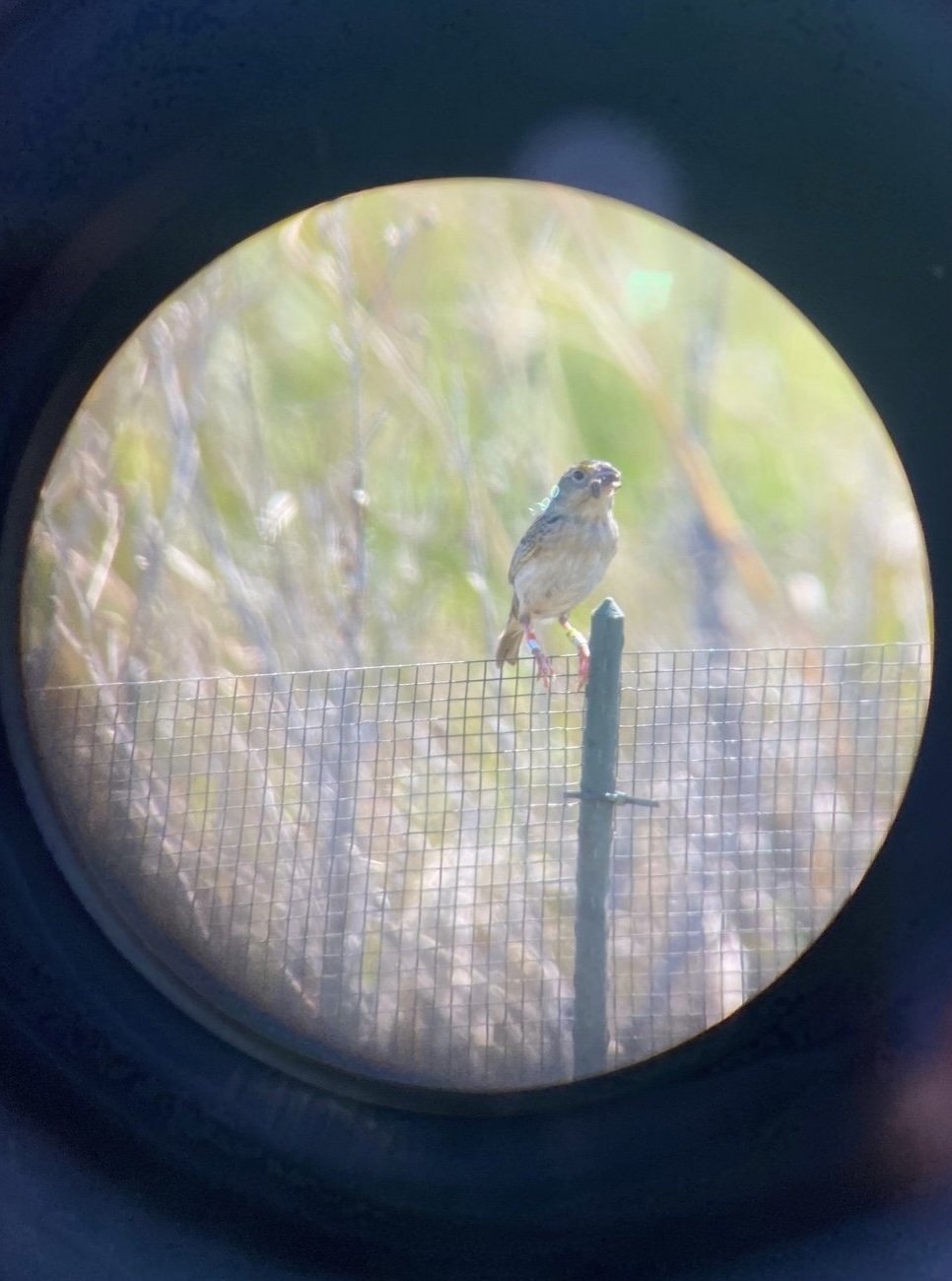Conservation Florida Joined the White House Council on Environmental Quality on Avon Park Air Force Range Sentinel Landscape
Photo by Adam Bass
Conservation Florida and partners welcomed White House CEQ Chair Brenda Mallory following the announcement of the America the Beautiful Challenge on Avon Park Air Force Range Sentinel Landscape tour led by the Department of Defense.
Avon Park, Fla. (May 20, 2022) - The Department of Defense (DoD), the U.S. Department of Agriculture's Natural Resources Conservation Programs (USDA NRCS), Conservation Florida, and partners from Archbold Biological Station and the Florida Wildlife Corridor Foundation welcomed White House Council on Environmental Quality (CEQ) Chair Brenda Mallory and team on the Avon Park Air Force Range Sentinel Landscape in Avon Park, Florida in May.
Conservation Florida was thrilled to be present for a wonderful day on the landscape with our colleagues and honored guests. The tour highlighted a successful partnership on the Avon Park Sentinel Landscape, which plays a key role in the connection and protection of the Florida Wildlife Corridor geography. It's one of two Sentinel Landscapes designated in Florida, with the Northwest Florida Sentinel Landscape located in Florida's panhandle designated earlier this year.
"It was a real honor to have Chair Mallory and her team visit our Sentinel Landscape and to share our story," said Charles "Buck" MacLaughlin, Ret. Lt. Col., USAF, Director of Range Operations. "Florida is the only state in the nation with more than one Sentinel Landscape, and Chair Mallory's trip was the perfect way to highlight the sometimes surprising synergy between the DoD and our conservation partners."
These landscape designations are utilized to improve regional resilience and sustainability, retain working agriculture and forestry lands, and protect natural resources and endangered species, all while supporting military operations and readiness. The landscapes unite federal agencies, state and local governments, and non-governmental organizations with a common goal: land conservation. In Florida, they are also critical portions of the statewide Florida Wildlife Corridor.
The tour of the Avon Park Air Force Range Sentinel Landscape occurred on the heels of an announcement that will support and accelerate locally led conservation and restoration projects. On Wednesday, May 4th, the National Fish and Wildlife Foundation and CEQ Chair Mallory announced that it is taking applications from states, tribes, agencies, and nonprofit groups for $1 billion in federal conservation grants. Stemming from President Biden's administration plan, this initiative provides grants that can go toward conservation initiatives over the next five years in an effort to conserve 30 percent of the nation’s land by 2030.
Conservation Florida’s President + CEO, Traci Deen and White House Council on Environmental Quality (CEQ) Chair Brenda Mallory on the Avon Park Air Force Range.
Specifically, the announcement highlighted Conservation Florida's primary work area, the Florida Wildlife Corridor, as an example of one of the main themes "for projects that will be funded through the America the Beautiful Challenge: connecting and reconnecting wildlife corridors, large landscapes, watersheds, and seascapes." Read more about the announcement here.
Conservation Florida team members Traci Deen, President and CEO, and Adam Bass, Vice President of Conservation, were present and honored to welcome Chair Mallory to a part of the Florida Wildlife Corridor rich in opportunity and partnership. The tour showcased a strong regional partnership on an imperative segment of the Corridor - partnership that is key to successful conservation at scale.
"It was an honor to welcome White House CEQ Chair Mallory to the Northern Everglades and on the Avon Park Air Force Range Sentinel Landscape while celebrating the America the Beautiful Challenge announcement with our partners," said Deen. "Conservation Florida is proud to link arms with the DoD, NRCS, and many more to collaboratively save land in a region that heavily impacts Florida's water, wildlife, working lands, food security, climate resilience, and our statewide wildlife corridor. At Conservation Florida, we're big believers in the power of partnership in land conservation, and this region boasts a strong one thanks to our local, state, and federal partners, our fellow nonprofits, and landowners."
The Florida Grasshopper Sparrow is a federally endangered bird found nowhere else in the world.
The Avon Park Air Force Range Sentinel Landscape boasts some of the most beautiful and well-managed lands in Florida and the tour did not disappoint. In fact, nature showed off. The group witnessed what is considered North America's most endangered bird, the Florida grasshopper sparrow, including a mating pair with four hungry chicks. The bird relies on Florida dry prairie habitat and nests in spring. The experience was a rare and special one as there were once less than 100 documented in the wild - although they are making a comeback thanks to land conservation, science, and good old-fashioned determination.
"Partnerships drive good conservation, and the Sentinel Landscapes here in Florida are great examples of that," said Bass. "The America the Beautiful Challenge announcement here in Florida was a poignant reminder that partnerships are the magic sauce to landscape-scale conservation visions like the Florida Wildlife Corridor. All of us at Conservation Florida are grateful to have been part of such a historic moment."
Conservation Florida is eager to meet the challenge and continue linking arms across the state to save land, connect the Corridor, and protect what makes Florida, Florida.
About Conservation Florida:
Conservation Florida is a statewide accredited land conservancy working to conserve Florida’s water, wildlife, wild places, and protect the Florida Wildlife Corridor. Our conservation projects support Florida’s native plants and wildlife, fresh water, wildlife corridors, family farms and ranches, the economy, and nature-based recreation. Since its founding in 1999, Conservation Florida has prioritized strategic and evidence-based land protection and has saved over 30,000 acres of critical habitat.



